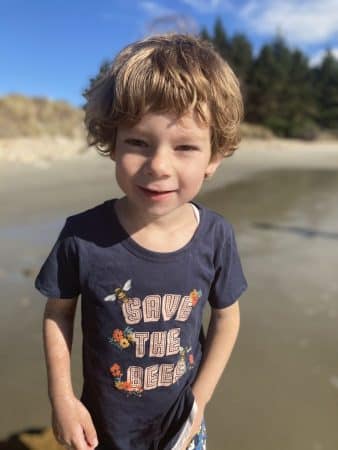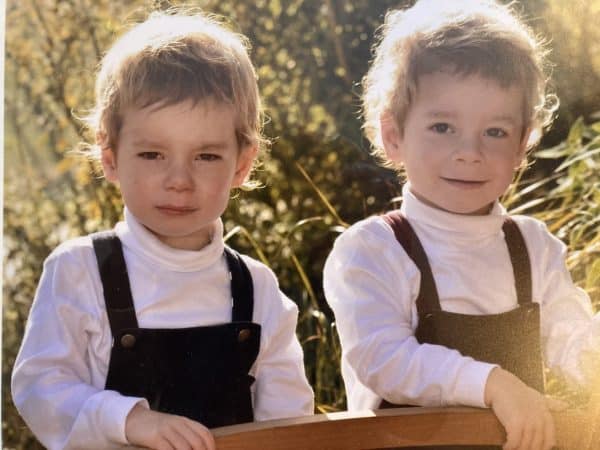
Angela Cuming
Allowing her authentically autistic twin boys be themselves is important for writer Angela Cuming.
Tommy and Henry are diagnosed just shy of their third birthday and for a while everything stops.
Then late one night you are watching them fall asleep and they look just as perfect as the day they were born and you realise that while everything has changed, the most important things are still the same.
Their speech and language therapist visits and you get a bit wobbly asking if they will ever speak because all you want to hear are the words “I love you.” I bet they tell you all the time, she says.
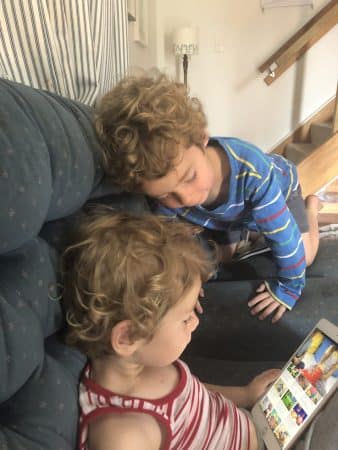
It’s photo day at kindy. You get a little neurotypical niggle about wanting a ‘nice’ picture of the boys, but it doesn’t work out.
And then you take them about to the beach, the place where they love to run wild and happy and free, and you pull out your phone and capture smiles so big and wonderfully happy and they will be the photos that are framed on the wall.
Now the beach is their playground and part-time classroom and they spend hours throwing rocks into the water and sit in the water, so the waves splash over them and grab shells and write their letters and numbers in the sand and suddenly you stop feeling like they are missing out on things other kids do.
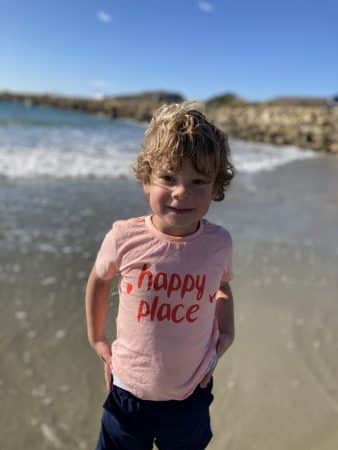
You find yourself second guessing if it’s the Right Thing To Do, and then they start singing the Greek alphabet they have taught themselves via YouTube and watch videos of themselves running along the beach and giggle as they replay a clip of the Teletubbies with dirty knees over and over again and you stop reading those headlines.
Then there’s another celebrity chef popping their head over the parapet to tell you children need to Grow Their Own Vegetables and they won’t be ‘picky eaters’ and this once would have bothered you but you are now too busy making your happy and healthy boys their fifth helping of buttered toast for dinner.
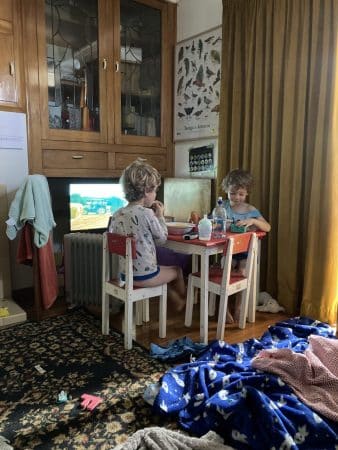
You start to see how unfair the world can be. The city school you were thinking of sending them to that declined to provide a mobility parking space, the comedienne that jokes about vaccines and autism, the organisations that use a puzzle piece to represent autistic brains and lives.
But there’s the good stuff, too. The kindy teachers who love them as fiercely as you do and spend months patiently guiding through how to wash hands and put on gumboots, the neighbour who drops off a second-hand typewriter for them to play with, the local primary school principal that asks what she can do to get her school ready for their enrolment.
Your village of occupational and speech and language therapists gives way to a village of autistic adults, who show incredible grace and kindness and patience with you and other allistic parents of autistic children.
You watch Tommy and Henry fall asleep again. Tommy strokes your hair and Henry presses his face into your neck.
I love you too, you tell them.
- Angela Cuming is a New Zealand-based writer, journalist and blogger.
- She is Mum to three boys, including 5-year-old autistic identical twins.
- She and partner Paul moved to Dunedin three years ago and live near the beach.
- This article appeared in Altogether Autism 2021.



